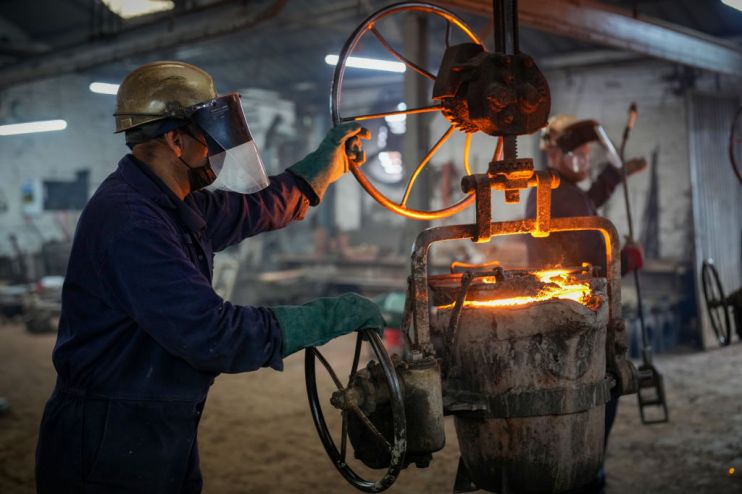UK factories in ‘survival mode’ as output tumbles to 29-month low

UK factories are in “survival mode” amid a demand slump, rising interest rates and swelling costs, a closely watched survey out today shows.
The S&P Global and Chartered Institute of Procurement and Supply’s (CIPS) final purchasing managers’ index (PMI) for October tumbled to 46.2, the weakest reading in 29 months when the country was grappling with the early stages of the pandemic.
The reading fell from 48.4 in September, but was revised up from an early estimate. It was also above the City’s expectations.
However, the PMI’s dive illustrates how weak the UK’s manufacturing is right now, with the survey now far below the 50 point threshold that separates growth and contraction.
Households and businesses cutting spending in response to a historic inflation surge and central banks raising interest rates rapidly have cooled the world’s biggest economies.
European countries’ PMIs have also dropped steeply in the past few months, with Germany notching a 44.1 reading on the combined survey last month.
UK factories’ decline was driven in part by “war in Ukraine and ongoing issues relating to Brexit stifling export performance,” the survey said.
Worryingly, factories shedded workers last month for the first time since December 2020, indicating the UK’s slump is starting to impact ordinary Brits.
The jobs market has held up surprisingly well amid tough inflation and slowing activity. The unemployment rate has dropped to the lowest level since the early 1970s, although this has been partly driven by hundreds of thousands of workers dropping out of the market altogether.
“Many manufacturers will be in survival mode right now,” Thomas Pugh, economist at RSM UK, said.
A breakdown in trade flows after the end of Covid-19 restrictions sparked by a sudden surge in demand resulted in factories mothballing work due to a shortage of inputs.
Firms have tackled backlogs in recent months as supply chains recovered, which has boosted the PMI, but this trend is likely to unwind soon.
“Production also will drop further over the coming months, as manufacturers rid themselves of excess inventory and run out of work backlogs to deplete,” Gabriella Dickens, senior UK economist at Pantheon Macroeconomics, said.